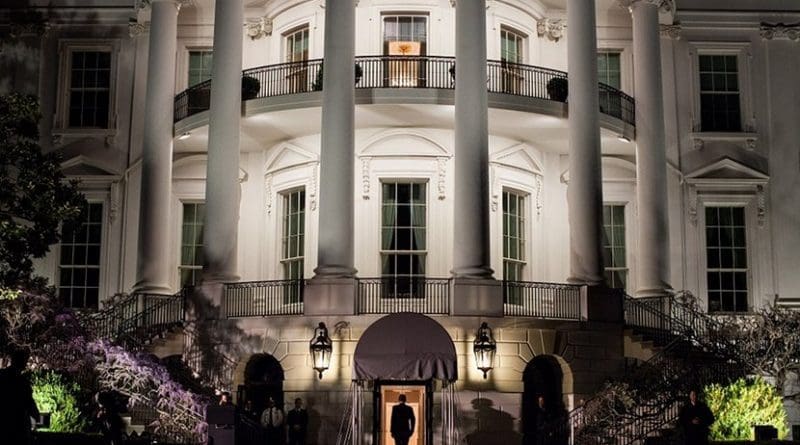How Did We Come To Have A Rogue Presidency? – OpEd
By Ivan Eland
The media has given us blanket coverage of House Speaker Nancy Pelosi’s announcement of an official House impeachment inquiry into President Donald Trump’s apparent attempt to use congressionally appropriated funds to Ukraine to trade a desperate Ukrainian President Volodymyr Zelenskiy for an investigation of Trump’s political rival at home. But few commentators have explored how we have arrived at this juncture. And I don’t mean an investigation of Trump and Rudy Giuliani’s activities leading up to the July 25 call between the two presidents.
I mean how did we arrive at a presidency grown so powerful that one incumbent could create such chaos. And I’m not talking about the Ukrainian president here.
At the Constitutional Convention in 1787, the Founders were concerned above all with the potential for tyranny, which had undone previous republics. Having just experienced tyranny by a foreign military, parliament and king, the document’s Framers most feared the new nation’s government and freedoms would be corrupted by a standing army, the influence of more powerful foreign governments, excesses of majority rule and tyranny by the executive.
At the federal level, they instituted a system of checks and balances of rival government branches, which they knew would be inefficient, but believed would be a bulwark against tyranny the outcome they most wanted to avoid. In a republic, the Framers believed that the legislative branch would naturally be the most powerful branch, but they also wanted the executive and judicial branches to have some independence from it to check its potential excesses.
Thus, these wise men intended for the president to merely execute domestic laws passed by Congress (the executive did have a limited veto of legislation that could be overridden by the legislature) and carry out congressionally made foreign policy abroad, especially commanding troops on the battlefield if Congress declared war.
Fast forwarding to the modern day. Despite all the pride that we have in crowing about checks and balances, the system has broken down and it did so long before Donald Trump’s arrival. However, Trump’s penchant for authoritarianism is especially worrisome.
Presidents since Franklin Roosevelt have been amassing so much executive power that the office would be barely recognizable to the Framers, who envisioned a modest office. Presidents now ignore laws passed by Congress; erroneously claim to be the nation’s “sole organ” of foreign policy; conduct unilateral, and sometimes secret, wars without congressional approval; stonewall legitimate congressional oversight by ignoring legislative subpoenas or claim the constitutionally bogus doctrine of “executive privilege”; and flout congressional legislative intent by reprogramming, suspending, or impounding legally appropriated funds or evading enforcement of congressionally passed statutes. Trump and other recent presidents have done all of these things.
But how did we get to such a powerful plebiscitary presidency? This is a fancy term for an elected monarch a potentiality that gave the Framers the most heartburn. They feared that a demagogic president could legitimate his actions by manipulating public opinion, so as to accrue so much power as to be very dangerous.
Congress, through the abdication of its own constitutionally given powers, during the 20th century and beyond, has ceased to be an effective check on an imperial executive gone rogue. Any modern-day president Bill Clinton, George W. Bush, Barack Obama or Donald Trump is now constrained only by a popular vote every four years and primarily media coverage in between elections. The only other remedy to such a rogue executive is impeachment, which we are seeing now, but it will be an uphill battle to win conviction in a Senate controlled by the president’s party.
We got to this sorry place in which the Framers’ system of checks and balances has broken down by wars of the 20th century. Wars tend to centralize power in the branch that executes them. Starting with the world wars and more importantly continuing through the long Cold War and the war on terror, the executive has amassed such powers that even the norms underlying the nation’s laws have eroded.
Unfortunately, like the unsuspecting frog that eventually gets scalded by gradually heating bath water, the American people have grown accustomed over a century or more to the executive wielding his usurped powers, even disregarding congressional wishes and prerogatives. The Constitution’s Framers would turn over in their graves, especially with a ruthless incumbent stretching the already excessive executive powers way beyond the unassuming office of president that they originally enshrined in the document.
This article was also published in Chicago Tribune


This president is merely executing domestic laws passed by Congress ! With your pedigree how did you miss this in your rantings.